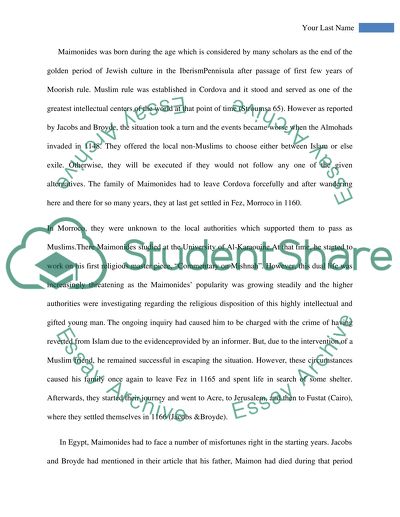Cite this document
(“Maimonides Research Paper Example | Topics and Well Written Essays - 2500 words”, n.d.)
Maimonides Research Paper Example | Topics and Well Written Essays - 2500 words. Retrieved from https://studentshare.org/history/1439785-maimonides
Maimonides Research Paper Example | Topics and Well Written Essays - 2500 words. Retrieved from https://studentshare.org/history/1439785-maimonides
(Maimonides Research Paper Example | Topics and Well Written Essays - 2500 Words)
Maimonides Research Paper Example | Topics and Well Written Essays - 2500 Words. https://studentshare.org/history/1439785-maimonides.
Maimonides Research Paper Example | Topics and Well Written Essays - 2500 Words. https://studentshare.org/history/1439785-maimonides.
“Maimonides Research Paper Example | Topics and Well Written Essays - 2500 Words”, n.d. https://studentshare.org/history/1439785-maimonides.


